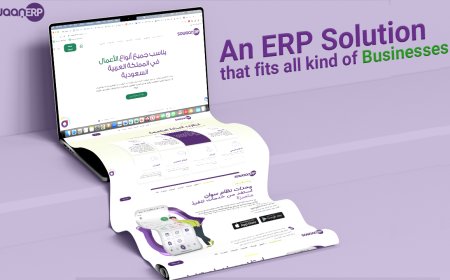Microsoft Dynamics Partner vs. Independent Consultant: What to Know
Understanding the differences between a Microsoft Dynamics partner and an independent consultant is crucial to ensuring your ERP or CRM implementation is successful.

When it comes to implementing Microsoft Dynamics 365, businesses often face a key decision: should they work with a certified microsoft dynamics partner or hire an independent consultant? Both options offer unique benefits and challenges, and the right choice depends on your companys size, complexity, budget, and long-term digital strategy.
Understanding the differences between a Microsoft Dynamics partner and an independent consultant is crucial to ensuring your ERP or CRM implementation is successful. This article explores the pros and cons of each and helps you decide which path is best for your business needs.
Who Is a Microsoft Dynamics Partner?
A microsoft dynamics partner is a company that has earned Microsofts certification by demonstrating expertise in implementing and supporting Dynamics 365 solutions. These partners have access to Microsofts training resources, technical support, and product updates. They often employ a team of specialists, including consultants, developers, project managers, and trainers.
Microsoft Dynamics partners usually offer end-to-end servicesfrom system assessment and design to implementation, customization, integration, and long-term support.
Who Is an Independent Consultant?
An independent consultant is a freelance professional with experience in Microsoft Dynamics. They typically operate solo or with a small team, providing specialized services such as configuration, training, or advisory support. While they may not have Microsoft certifications, many bring years of hands-on experience and deep product knowledge.
Independent consultants are often hired for short-term or specific project needs and are generally more flexible in pricing and engagement models.
Advantages of Working with a Microsoft Dynamics Partner
1. Certified Expertise
A certified microsoft dynamics partner meets Microsofts stringent standards for skills, project success, and customer satisfaction. This ensures youre working with a team that is technically proficient and up to date with the latest features and best practices.
2. Comprehensive Services
Partners offer full-service capabilitiesassessment, implementation, development, training, and support. You can rely on them as a single point of contact for all your Microsoft Dynamics requirements.
3. Scalability
As your business grows, your system needs may expand. A Microsoft Dynamics partner can scale resources, add new functionalities, or support additional modules across geographies.
4. Access to Microsoft Resources
Partners have direct access to Microsofts technical support, early product updates, and beta features. This translates to quicker problem resolution and faster adoption of new technologies.
5. Team-Based Approach
Unlike a solo consultant, a partner brings a team of expertseach with specialized rolesensuring no single point of failure in your project.
Advantages of Hiring an Independent Consultant
1. Cost-Effective
Independent consultants usually charge lower hourly rates than large consulting firms. For small projects or startups, this can lead to significant cost savings.
2. Flexible Engagement
An independent consultant can offer flexible arrangementspart-time, project-based, or retainertailored to your needs and budget.
3. Personalized Attention
Since youre likely to work directly with the consultant, communication is more direct and personal. They often provide faster turnaround for smaller tasks.
4. Specialized Skills
Some independent consultants focus on a niche area, such as Dynamics 365 for Sales or Power Platform development, offering deep expertise in a specific domain.
Challenges of Each Option
Microsoft Dynamics Partner
-
Higher Costs: Premium service often comes with higher fees.
-
Less Flexibility: Engagements may be more structured, requiring longer lead times and formal processes.
-
Overhead: Larger teams may lead to communication lags or layers of management.
Independent Consultant
-
Limited Bandwidth: A solo consultant may not be able to handle large or complex projects alone.
-
No Backup: If the consultant is unavailable or leaves mid-project, your implementation could stall.
-
Lack of Certification: Not being a certified microsoft dynamics partner may limit their access to Microsofts support resources and tools.
Which One Should You Choose?
The right choice depends on your business size, project complexity, and risk tolerance.
-
Choose a Microsoft Dynamics partner if:
-
You have a medium to large-scale implementation.
-
You require ongoing support and future scalability.
-
You want a team-based approach with full Microsoft backing.
-
Choose an independent consultant if:
-
You have a small project or need specialized help.
-
Youre working with a limited budget.
-
You value one-on-one interaction and flexibility.
Conclusion
Both Microsoft Dynamics partners and independent consultants bring value to a Dynamics 365 projectbut in different ways. A microsoft dynamics partner offers a comprehensive, certified, and scalable solution ideal for complex business needs. On the other hand, an independent consultant may be a better fit for smaller projects or specific technical tasks requiring agility and cost-efficiency.
Ultimately, the decision should align with your project goals, available resources, and expectations for long-term support. Carefully assess your priorities, request client references, and weigh both options before making a choice that will impact your business transformation journey.










































